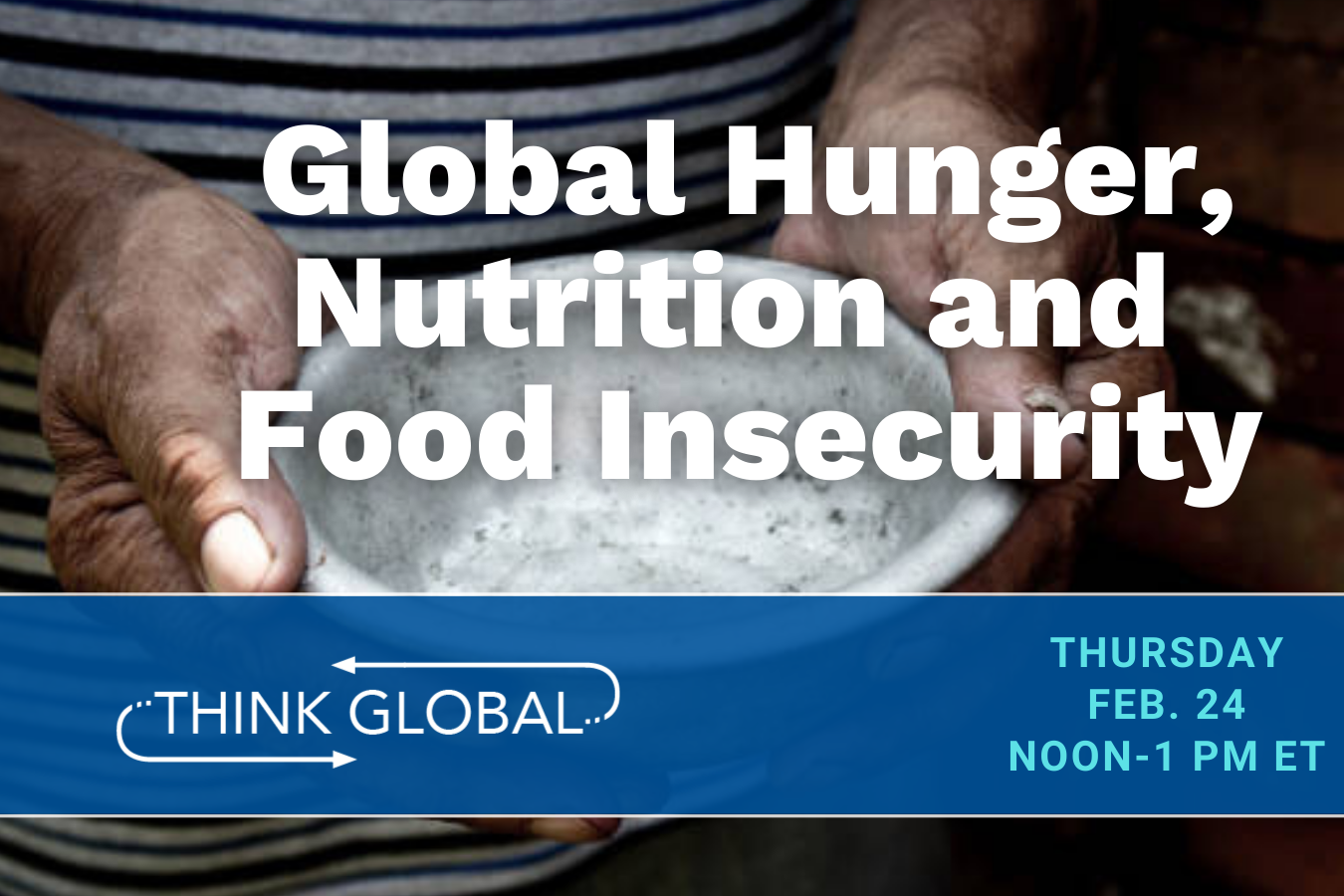
One in four people globally are moderately or severely food insecure and 10 percent of people globally are hungry. Despite the fact that more than enough food is produced to feed the global population, the percent of people experiencing food insecurity is on the rise, largely due to the COVID-19 pandemic. Even prior to COVID-19, there was not meaningful progress towards meeting Sustainable Development Goal (SDG) Target 2.1-ending hunger and ensuring access for all people to safe, nutritious and sufficient food all year round. Now the pandemic has made this goal even more challenging. Hunger will not be eradicated by 2030 unless bold actions are taken to accelerate progress, especially actions to address inequality in access to food. During this presentation, hunger and food insecurity experts will discuss challenges and opportunities in low-and-middle income countries (LMICs) and the United States, and will address systems and policy approaches to reduce food insecurity and disparities.
Register to attend via Zoom https://duke.zoom.us/webinar/register/WN_4mLCHUg-RJG5szFXgnsxRA
Speakers:
Edward Frongillo, Jr, PhD
Hunger and Food Insecurity in Low-and-Middle Income Countries
University of South Carolina
Hilary Seligman, MD
Food Insecurity in the United States and Policy Strategies to Reduce Disparities
University of San Francisco
Sarah Bowen, PhD
How Racism is a Fundamental Cause of Food Insecurity
North Carolina State University
Event Series
Think Global